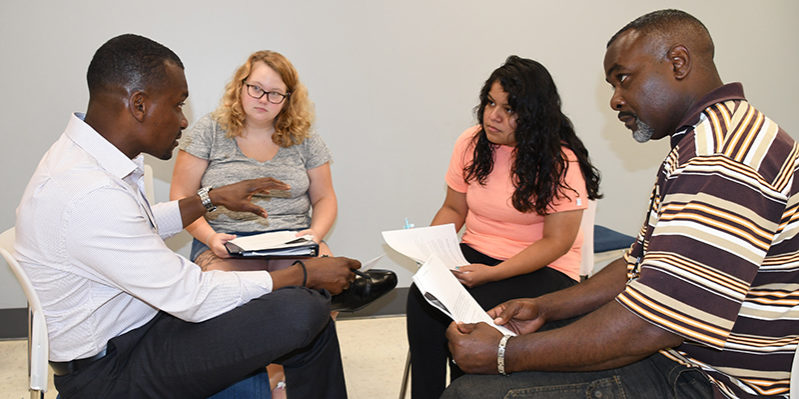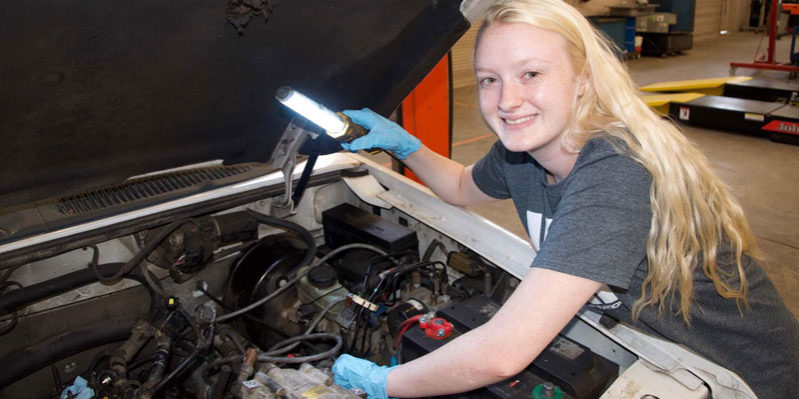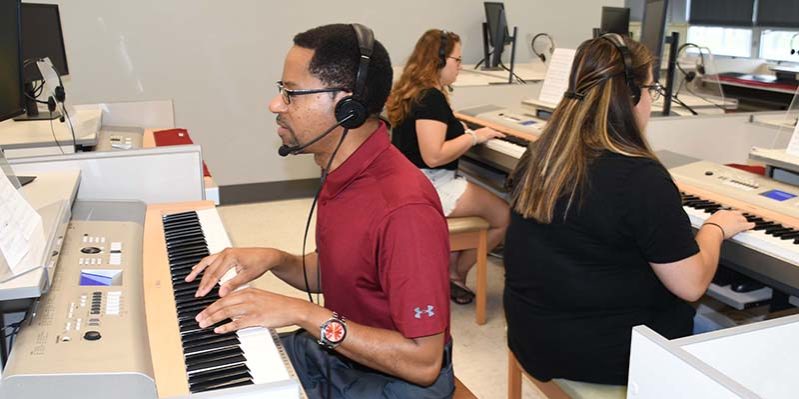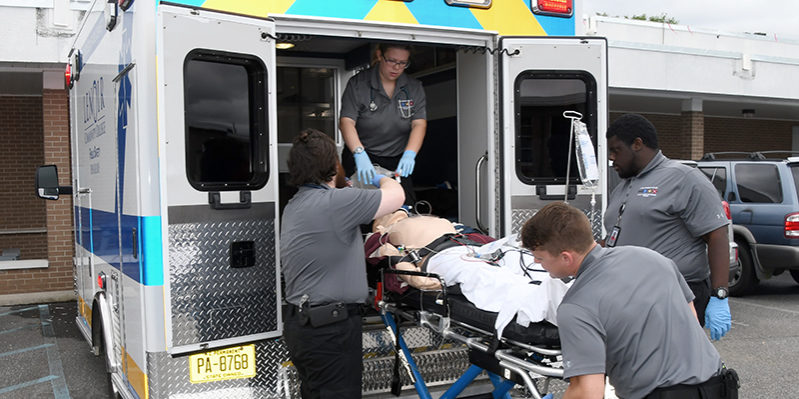
There are many reasons that someone chooses a career in Human Services, but one common thread is that they care about helping others through life.
The Human Services Technology Program at Lenoir Community College offers two concentrations and a certificate program from which to choose, Human Services Technology and Human Services Technology with a concentration in Social Services concentration. Substance Abuse Certificate was recently added to give students more opportunities in the field. “This program is very in tune to the needs of the community,” Program Chair Warren Moore said. “With the current opioid crisis in our state, skilled and knowledgeable students are needed to help combat this epidemic.”
Within the program, students learn skills such as suicide assessment, crisis management, how to facilitate groups, appropriate interviewing techniques, effective attending behaviors, substance abuse assessment, and evidenced-based treatments; as well as culturally competent skills needed to work with diverse populations. “These are all essential skills to becoming an effective Human Services professional.”
Human Services graduates find positions in the local department of social services, mental health centers, group homes, halfway houses, nursing homes, assisted living facilities, and youth service agencies.
Being an effective Human Services professional requires specific skills; however, it also requires having an attitude of care and understanding. “Students who choose Human Services have caring hearts and a willingness to give back to their communities,” Moore said. “Students come from all walks of life. Many are non-traditional students with years of life experience, and others are recent high school graduates wanting to get a degree under their belt before transferring to a four-year university.”
Moore said having a variety of students in classes is very rewarding. “The students who have struggled with drugs or alcohol in their past become the teachers to the younger, less seasoned students. Many days I am present only to help facilitate this natural environment of learning.”
Moore said the classes are small enough for each student to receive special attention and feedback from the instructor. “This type of learning environment affords students the opportunity to learn new skills and behaviors and practice those newly acquired skills before going out in the workforce.”
Students also have another opportunity to practice their skills in an area of interest to them through two program required Work-Based Learning (WBL) experiences. Students complete two (160) hour interns at an agency of their choice (with advisors’ guidance), and in their community. “This is a unique part of the program that gives students hands-on training in the human services field,” Moore said.
Students may graduate from the Human Services Program and transfer to universities like East Carolina University, Barton College, Shaw University, and North Carolina Central University. Along with pursuing further education, students begin working in the human services field in social service agencies, drug treatment facilities, and local school systems.
In North Carolina, graduates of a two-year program typically begin their first job with a salary between $27,000 and $32,000. Salaries rise with each level of academic attainment. Many students decide to continue their education to earn a bachelor’s, master’s, or even a doctorate in Human Services.
“I am glad I graduated from the Human Services Program at LCC,” Beverly Dunn said. “The information that I learned made getting my degree at Shaw much easier.”
Moore said he is confident that students are prepared for whatever their career choice, whether it is to transfer to a four-year university or to enter into the workforce. “This program is special because it is the epitome of the philosophy of the father of the North Carolina Community College System Dr. Dallas Herring of “taking people where they are and carrying them as far as they can go.”
For more information, visit LCC Human Services.



